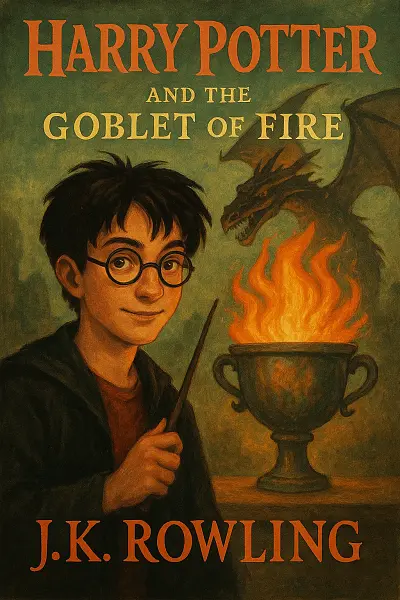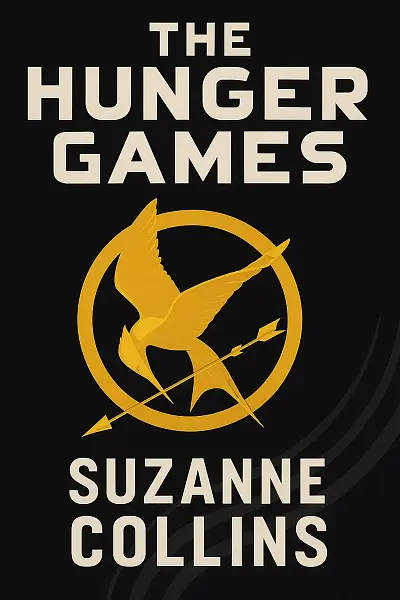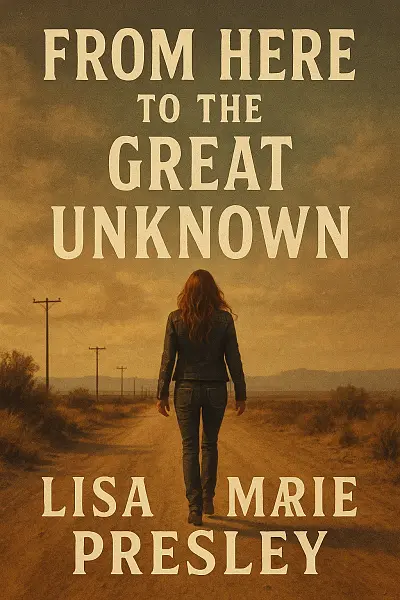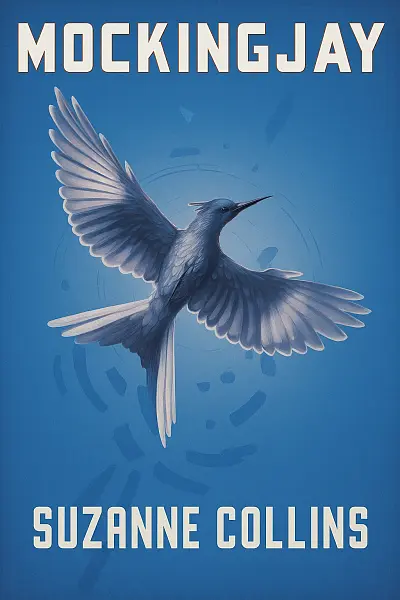
Mockingjay
by: Suzanne Collins
Katniss Everdeen survives the destruction of her home and finds herself in the strict underground world of District 13, where the rebellion against the Capitol is rising. Though Katniss’s loved ones are scattered and battered, she’s chosen as the Mockingjay, a symbol meant to inspire hope.
When the Capitol captures Peeta, Katniss faces the wrenching cost of being a pawn in a war she never wanted. Thrust into the spotlight, she must decide if she can bear the weight of leading a revolution, knowing her choices could save or destroy countless lives.
Will Katniss rise, or will fear and guilt hold her back? The tension is palpable, the atmosphere gritty and urgent, full of hard questions and high stakes.
"“When hope is weaponized and truth is bartered, survival means remembering who you are when the world forgets.”"
Let's Break This Down
The Author's Voice
Atmosphere
The vibe? Stark, urgent, and relentlessly tense. Mockingjay immerses you in a world dripping with dread—think bombed-out cityscapes, claustrophobic bunkers, and a constant sense of danger lurking around every corner. There's hardly a breather; conflict and anxiety practically hum off every page. If you crave a hopeful, cozy read, this is not it—expect emotional turbulence dialed to eleven.
Prose Style
Suzanne Collins goes for lean and direct. The writing is punchy, almost clipped, dropping you straight into Katniss’s head with a sharp, first-person narrative. There’s a raw, journalistic edge—sentences tend to be short, clear, and often emotionally charged. Don’t expect flowery language or long descriptive passages; Collins cuts right to the chase, making each word count.
Pacing
This book moves fast—action scenes have whiplash speed, but even strategic sections hum with tension. Still, Collins pauses occasionally for psychological depth and quieter moments, letting you catch your breath just before plunging you back into chaos. Expect a mix of rapid-fire sequences and reflective beats, keeping things unpredictable and never dull.
Character Focus
Katniss’s voice dominates with a laser focus—intimate, wounded, fiercely perceptive. Secondary characters get less page time, but their motivations and emotional arcs are sketched with enough detail to keep things compelling. Dialogue is gritty and real, with every exchange loaded with subtext and, often, trauma.
Mood & Tone
Bleak but deeply human. There’s a gritty realism here: battles feel brutal, choices are anguished, and easy victories are nowhere to be seen. Yet, glimmers of hope and stubborn resilience sneak through the gloom, powered by loyalty, love, and rage. It’s a tone that sticks with you: somber, raw, but ultimately courageous.
Imagery & Description
Minimalist yet effective. Collins favors spare, vivid touches—moments of sensory detail that pop when they’re most needed, without bogging down the pace. She lets the starkness of the setting and the sharpness of characters’ feelings paint the picture, rather than prolonged physical description.
Emotional Impact
Prepare to feel wrung out—Mockingjay doesn’t hold back. Collins puts her characters (and readers) through an emotional gauntlet: fear, loss, doubt, flashes of hope, and grim determination. If you want a story that grabs your heart and keeps squeezing, this book’s emotional intensity will deliver.
Overall Rhythm
Expect an edge-of-your-seat, breathless rush. There’s a pulse-pounding momentum, broken up by thoughtful, often haunting introspection. The prose, the story beats, even the dialogue—everything serves to keep the tension ratcheted high, leaving you eager (and a little afraid) to turn each page.
Key Moments
-
The "Star Squad" cam dispatch: a rebel mission that turns into a lethal gameboard—no escape from the Capitol’s horrors
-
Katniss’s desperate, unflinching decision in Snow’s rose garden—betrayal, justice, or survival?
-
Boggs, Finnick, and Prim: heartbreaking sacrifices that rip the ground from under your feet
-
Hijacked Peeta: love, memory, and absolute uncertainty—who can you trust when even your heart lies?
-
A revolution’s gray morality—when the rebels’ violence blurs the line between hero and villain
-
Propulsive, clipped prose that refuses comfort—Collins makes every moment feel raw and urgent
-
That final haunting image: “There are worse games to play,” echoing long after the last page
Plot Summary
Mockingjay picks up as Katniss Everdeen recovers in District 13, which leads the rebellion against the oppressive Capitol. As the official "Mockingjay," Katniss becomes the face of the uprising, struggling with trauma while navigating propaganda battles and personal loyalties. The rebel assault on the Capitol intensifies, peaking with Katniss's squad infiltrating the city, where several allies and her sister Prim are killed in a bombing orchestrated by the rebels themselves. In a shocking twist, Katniss assassinates President Coin rather than Snow, recognizing Coin's own ruthlessness, and is subsequently acquitted by reason of insanity. The novel closes with Katniss and Peeta rebuilding their lives together in a quiet, bittersweet peace as Panem slowly begins to heal.
Character Analysis
Katniss Everdeen undergoes immense psychological trauma, evolving from a symbol manipulated by others to someone who makes her own, if morally ambiguous, choices. Peeta Mellark grapples with the Capitol’s torture and brainwashing, struggling to reclaim his identity and eventually choosing empathy and resilience. Gale Hawthorne’s hardening pragmatism places him at odds with Katniss, especially after his involvement in the bombing that kills Prim. President Snow and President Coin stand as mirror images: both embodying morally corrupt power, prompting Katniss to fundamentally question the nature of leadership and revolution.
Major Themes
The corrupting influence of power stands front and center—Katniss must distinguish between the Capitol’s cruelty and the rebel leadership’s willingness to use ruthless tactics, as illustrated in Prim’s death. The trauma of war is unflinchingly depicted, shown in Katniss’s PTSD, Peeta’s conditioning, and the loss experienced by all. Propaganda and manipulation run throughout, with both sides weaponizing symbols and truth, making Katniss’s nominal control over her own image a recurring conflict. Finally, the devastating costs and ambiguous aftermath of rebellion highlight the difficulties in building a just society after tyranny.
Literary Techniques & Style
Suzanne Collins uses a direct, first-person narration, drawing readers intimately into Katniss’s experiences and mental state. Symbolism is deliberate—most notably the omnipresent mockingjay pin, representing rebellion and hope, but also ambiguity and loss. The pacing is brisk, with abrupt transitions mirroring Katniss’s trauma and the chaos of war. Collins employs recurring motifs of fire and traps to reinforce feelings of danger, entrapment, and regeneration throughout the story.
Historical/Cultural Context
Mockingjay is set in a dystopian future Panem, modeled on a post-apocalyptic North America, reflecting anxieties about authoritarianism, inequality, and the spectacle of violence in modern media. Woven through are reflections on revolutionary rhetoric, propaganda, and rebellion, echoing real-world resistance movements and wars, especially those of the late 20th and early 21st centuries.
Critical Significance & Impact
Mockingjay brought a decisively bleak, unflinching conclusion to a blockbuster YA trilogy, challenging genre norms by refusing easy answers or fully triumphant endings. Its depiction of trauma, moral ambiguity, and the cyclical nature of power has fueled classroom debates and remains highly relevant. The book has left an enduring mark on dystopian fiction, inspiring other authors and sparking widespread conversation about the ethics of violence and leadership.
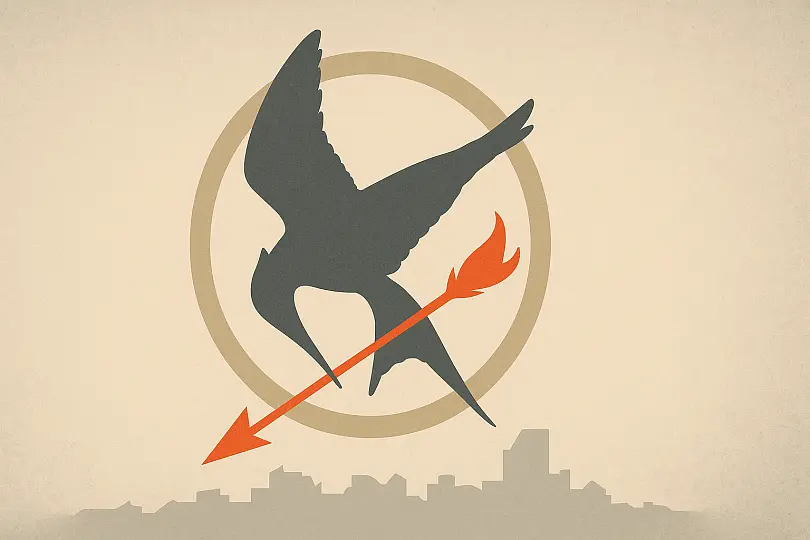
Rebellion ignites hope in a shattered world where survival is war
What Readers Are Saying
Right for You If
If you’re into dystopian adventures, Mockingjay is basically a must-read. Seriously, anyone who devoured the first two Hunger Games books will want to see how Katniss’s story wraps up—so if you love high-stakes action, twisted governments, and morally gray choices, you’ll be hooked.
You’ll especially love this if:
- You’re drawn to books with a strong, complex heroine who doesn’t always have easy answers.
- You like stories that explore the messy aftermath of rebellion rather than just the big battle scenes.
- You’re someone who craves a blend of action, strategy, and emotional depth, rather than just non-stop thrills.
- If a dark, gritty vibe and tough questions about justice and power sound appealing, you’ll probably tear through it in a weekend.
But here’s the thing:
- If you’re hoping for lighthearted fun or lots of romance, this probably isn’t your jam. It gets really heavy—emotionally and thematically—so readers looking for an easy escape might want to pick something else.
- If you struggled with the pacing or the intensity of Catching Fire, fair warning: Mockingjay dials that up, and then some. Some people find it bleak, and the action isn’t always front and center—there’s a lot of politics and trauma to process.
- Also, if you’re new to the series, jumping in here would be confusing—start from the beginning for sure.
So, bottom line: if you’re up for something gripping and thought-provoking that wraps up one of the most epic YA stories out there, Mockingjay will totally deliver. Otherwise, you might wanna save it for when you’re ready for a read that packs a serious emotional punch.
What You're Getting Into
Get ready for an intense journey as Katniss Everdeen finds herself at the heart of a nation on the brink of revolution.
Torn between personal loss and the hopes of a desperate people, Katniss must decide what — and who — she's truly fighting for.
With high stakes, haunting dilemmas, and raw emotion, Mockingjay sets the stage for a gripping finale where survival could mean burning down the world as she knows it.
Characters You'll Meet
-
Katniss Everdeen: Reluctant symbol of the rebellion, Katniss grapples with trauma and the immense pressure of being "the Mockingjay." Her inner conflict and fierce loyalty propel the heart of the story.
-
Peeta Mellark: Loyal, compassionate, and deeply affected by Capitol manipulation, Peeta's struggle with his altered memories adds a gut-wrenching tension to his relationship with Katniss.
-
Gale Hawthorne: Katniss’s steadfast friend and fighter for the cause, Gale’s strategic mind and growing ruthlessness push the boundaries of his bond with Katniss and question the cost of war.
-
President Snow: The calculating antagonist whose tight grip on Panem and personal vendetta against Katniss drives much of the plot’s conflict and suspense.
-
President Alma Coin: Determined and enigmatic leader of District 13, Coin’s morally gray strategies challenge both Katniss and the idealism of the rebellion.
More Like This
Fans of The Hunger Games series often find themselves drawn to Divergent by Veronica Roth—both stories thrust their protagonists into fractured societies where survival hinges on impossible choices and where rebellion simmers just beneath the surface. Like Tris, Katniss is forced to navigate the blurred lines between hero and pawn, sparking tough questions about loyalty, trust, and the cost of freedom.
Another compelling parallel pops up with 1984 by George Orwell. If dystopian politics and the manipulation of truth captivate you, Mockingjay magnifies those themes through the insidious propaganda wars waged by both the Capitol and the rebels. Watching Katniss grapple with being a living symbol echoes Winston Smith’s own struggles against his oppressors, but through the lens of personal trauma and hope squeezed from near-despair.
And on the screen, the tense uprising and battle for justice in Mockingjay has the explosive, gritty feel of Battlestar Galactica. The raw emotion and moral ambiguity, especially with leaders making crushing decisions in the name of a “greater good,” will absolutely remind you of that show’s haunting, high-stakes conflicts. Both worlds don’t shy away from the messiness of war, loss, and what it really means to fight for your people.*
Critic's Corner
What happens when survival itself becomes a political act?
Mockingjay, the incendiary finale of Suzanne Collins’s Hunger Games trilogy, dares to ask whether, after every victory, hope can survive in a world that seems permanently scarred. Through Katniss Everdeen’s haunted voice, the story confronts the price of rebellion, questioning the shape of freedom and the cost of being its reluctant symbol. Are heroines chosen, made, or broken by power that rehearses cruelty in endless repeats?
Collins’s writing, always taut and direct, distills trauma into short, urgent sentences: the language swings between sharp immediacy and numb detachment, mirroring Katniss’s battered psyche. The constant use of first-person present tense makes every moment feel raw—sometimes almost too visceral, as when scenes of grief or violence become fragmented, mirroring breakdown more than story progression. Dialogue maintains character authenticity, but exposition can feel heavy-handed in early chapters, especially as Katniss processes the layered manipulations around her. Still, Collins excels at revealing emotional complexity through telling details—those moments where a bitter twist of phrase or a passing touch signal more than any speechifying could. Symbolism, especially the mockingjay itself, appears throughout as both burden and beacon.
At its heart, Mockingjay is less about epic battles and far more about psychological and moral warfare. The narrative dives deep into the trauma of systemic violence, offering a nuanced depiction of PTSD, loyalty fractured by propaganda, and the corrosion of innocence when war is recast as spectacle. Themes of manipulation, ethical ambiguity, and the suspicious similarity between oppressor and liberator anchor the plot. The book invites tough questions: Who gets to tell the story of the revolution? Can new orders avoid imitation of the horrors they topple? The story also resonates now, addressing the cost of using personal pain as public currency in a world obsessed with media and mythmaking—an eerily prescient gaze into the machinery of modern politics and celebrity.
In the pantheon of dystopian YA, Mockingjay distinguishes itself by refusing easy victories. Where typical genre fare might hinge on clever schemes and triumphant showdowns, Collins leans hard into ambiguity, letting pain, recovery, and refusal to glorify violence take center stage. Compared to earlier books, the mood is notably darker and the narrative risks alienating readers craving tidy heroics, but the integrity of this posture marks it as a genuine outlier in teen fiction. As a conclusion to Collins’s trilogy, it both honors and complicates what came before, solidifying her place alongside Orwell and Atwood in envisioning youth rebellion.
Mockingjay is both catharsis and cautionary tale—fierce in its empathy, honest in its bleakness. While the pace can sometimes slog under the weight of Katniss’s trauma and the complex political machinations, the book’s refusal to flinch ultimately makes it matter. This is a conclusion that wounds and heals in equal measure, demanding as much courage from its readers as it ever asks of its heroine.
Community Thoughts
I seriously almost threw the book when Finnick’s fate hit. That scene just gutted me. Why do authors do this? Yet I couldn’t look away, had to keep reading like a moth to a flame. Rue’s lullaby still haunts me.
Katniss just won't get out of my head. Every time she steps into the line of fire, I remember that cold, calculated look in her eyes during the propos. Honestly, she haunts my downtime.
Honestly, Katniss just wouldn’t leave my mind after reading Mockingjay. Her struggles and choices replayed in my head at 2am, especially that final scene—couldn’t sleep, couldn’t stop thinking. This book really lodges itself in your brain.
okay but CAN WE TALK about Finnick? I thought I was ready but nope, his story wrecked me. literally stayed up hours obsessing over what would happen to him. suzanne collins, why do you do this to us?
i’m STILL thinking about Finnick. his story wrapped around my brain like a net, couldn’t shake him off for days. why did a YA book make me feel like this? thanks, collins, for the emotional whiplash.
Leave Your Review
Local Take
Why It Matters
Mockingjay strikes a nerve with readers in the United States, tapping into deep cultural anxieties about government power, social inequality, and media manipulation.
-
Historical echoes? The distrust of authority and the fight for individual rights feel eerily reminiscent of events like the Civil Rights Movement, Vietnam War protests, and modern debates over surveillance and protest rights. Americans see shades of their own rebellious heritage in Katniss’s struggle against the Capitol.
-
Cultural values: The book’s fierce focus on personal freedom, resistance, and sacrifice totally clicks with the national ethos—but the chaos and trauma portrayed can clash with the usual American optimism about change. The messy, ambiguous “victory” at the end feels surprisingly honest given a culture that usually roots for satisfying, clear-cut wins.
-
Plot points: The tragic cost of revolution, especially the collateral damage to the innocent, lands with particular weight in a society saturated by news of mass violence and unrest. The media’s role as both tool and weapon feels uncannily relevant in the age of 24/7 news cycles and social media.
-
Literary echoes: Mockingjay challenges the “hero’s journey” tradition that’s strong in American literature; instead of triumphant heroes, Collins gives us broken survivors—and that rawness really resonates with readers questioning easy answers.
Food for Thought
Controversies around Mockingjay by Suzanne Collins:
- Mockingjay stirred up strong debate among readers over its dark tone, graphic violence, and the bleak fates of major characters, with some criticizing it as too grim for its young adult audience.
- The book’s portrayal of trauma, war, and ambiguous morality has sparked ongoing cultural discussions about whether YA fiction should shield readers from harsh realities or confront them head-on.
Like what you see? Share it with other readers



